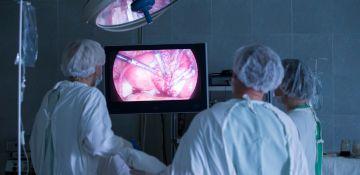Cancer surgery is a critical step in treatment and recovery, but for many patients, managing pain afterward becomes a daily concern. Pain can affect sleep, mobility, emotional well-being, and overall quality of life. With the right strategies, however, pain can be managed effectively—allowing for a smoother, more comfortable recovery.
Understanding the Nature of Post-Surgical Pain
Pain after cancer surgery isn’t the same for everyone. The intensity, duration, and type of pain depend on the type of cancer, the location of surgery, and how the body responds to healing. While some patients experience mild discomfort, others may deal with moderate or severe pain requiring ongoing care.
Types of Pain Common After Cancer Surgery:
- Incisional Pain: Directly related to the surgical cut, often managed with painkillers.
- Deep Tissue Pain: Felt internally, especially with abdominal or chest surgeries.
- Neuropathic Pain: Burning, tingling, or shooting pain from nerve involvement.
- Phantom Pain: Pain in a body part that has been removed (e.g., post-mastectomy).
Recognizing the nature of pain is the first step in managing it correctly.
Top Pain Management Techniques After Surgery
1. Pharmacological Pain Control
Medications are the cornerstone of managing post-operative discomfort. Depending on your condition, your doctor may recommend:
- Paracetamol or NSAIDs: First-line drugs for mild pain
- Opioids (e.g., morphine, tramadol): For moderate to severe pain; used cautiously to avoid dependency
- Neuropathic Pain Medications: Drugs like pregabalin or amitriptyline to treat nerve-related pain
- Topical Anesthetics: Especially for localized, surface-level pain
Proper dosage timing helps “stay ahead” of the pain rather than waiting for it to intensify.
2. Non-Medication Methods That Work
For many patients, combining drug therapy with non-drug techniques can accelerate healing:
- Mind-body therapies: Meditation, progressive muscle relaxation, guided imagery
- Acupuncture or acupressure: Useful for neuropathic or chronic pain
- Heat and Cold Compresses: Reduce inflammation and relax tense muscles
- TENS (Transcutaneous Electrical Nerve Stimulation): A proven method for stimulating pain-relief pathways
These alternatives are especially helpful for patients trying to reduce reliance on medications.
Activity, Movement, and Rest: The Delicate Balance
After surgery, rest is important—but so is gentle movement. Patients are often advised to start light walking and stretching as soon as medically allowed. Movement helps:
- Improve circulation and oxygen flow
- Prevent stiffness and joint pain
- Support bowel movement and digestion (especially after abdominal surgery)
However, overexertion can trigger setbacks. It’s best to follow a customized activity plan given by your care team or physical therapist.
Dietary Support for Pain and Healing
A nutrient-rich diet plays a surprising role in pain perception and recovery. Inflammatory foods can worsen pain, while anti-inflammatory diets rich in fruits, vegetables, omega-3 fatty acids, and whole grains support faster healing.
- Hydration: Crucial for maintaining tissue elasticity and muscle function
- Protein: Helps tissue repair and strengthens immune response
- Vitamin C and Zinc: Promote wound healing
Avoiding caffeine, alcohol, and processed foods can also support better pain control and sleep quality.
Emotional Impact of Pain and Psychological Support
Pain doesn't just affect the body—it weighs heavily on the mind. Cancer survivors often report feelings of anxiety, depression, or helplessness as a result of persistent pain. Incorporating emotional wellness into pain management is essential.
- Support groups (in-person or online)
- Counseling or psycho-oncology services
- Cognitive-behavioral therapy (CBT) for pain re-framing
Building emotional resilience plays a huge role in pain tolerance and quality of life.
When Should You Seek Help?
Pain should gradually reduce as the healing process continues. Contact your cancer care team if you experience:
- Sharp, sudden pain that worsens over time
- Pain interfering with sleep or basic activities
- Symptoms of infection (redness, fever, swelling near the incision)
- Emotional distress related to pain
For expert evaluation and care planning, you may connect with a seasoned surgical oncologist in Noida.
Meet Dr. Kanuj Malik
Dr. Kanuj Malik is a highly experienced surgical oncologist with 14 years of excellence in cancer care. His comprehensive approach combines surgical expertise with personalized recovery and pain management guidance, helping patients regain control and confidence during the healing journey.
Closing Thoughts
Managing pain after cancer surgery is not just about taking pills—it’s a holistic process that blends medical, emotional, and physical care. With the right support system, tools, and mindset, patients can emerge stronger and more resilient on the road to recovery.
